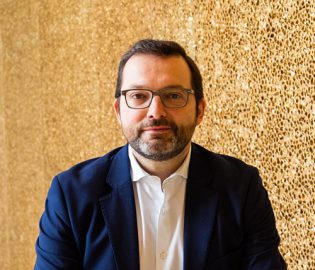An outstanding and legendary figure of labor and population economics, Jacob Mincer, was born on 15 July 1922. On this occasion, Pedro N. Teixeira, author of a prize-winning book with Oxford University Press (2007) about Mincer, who had interviewed him in person for the project, answered some questions about the researcher and his work (see below).
Together with Barry Chiswick, Teixeira will reflect about Mincer’s work during the forthcoming online Summer Event of the Journal of Population Economics (JOPE) on July 15, 2022 open to the public.
The event (for more information and registration details see LINK) will feature 16 articles published or forthcoming this summer in the journal. This is an ideal way to follow fresh research and to interact with authors and editors of the leading academic outlet in population economics based on the spirit of great minds in this field including Thomas Robert Malthus, Theodore W. Schultz, Jacob Mincer and Gary Becker.
JOPE has just received an SSCI Impact Factor of 4.7 and a Scopus CiteScore of 6.5.

Professor Pedro N. Teixeira is the Secretary of State for Higher Education in the Portuguese Government. He has authored the prize-winning book “Jacob Mincer: A Founding Father of Modern Labor Economics“, Oxford : Oxford University Press, 2007.
- Pedro Nuno Teixeira is a Full Professor of Economics at the Faculty of Economics of the University of Porto and a former Director of CIPES – Centre of Research in Higher Education Policies (2009-2022).
- His areas of specialization are the economics of education and the history of economic thought.
- He has published in a broad range of scientific journals in his areas of interest and has authored or edited several volumes for Oxford UP, Springer, Kluwer, Palgrave, Routledge, Edward Elgar, Brill, and Sense.
- He is the editor of Human Capital: Critical Concepts in Economics, 4 vols. (Routledge, 2014) and Editor-in-Chief of The International Encyclopedia of Higher Education, 3 vols. (Springer, 2020).
- He has served as a special adviser to the President of Portugal on Higher Education and Science (2016-2021) and on Higher Education and Economic Affairs (2021-2022).
- He was Vice-Rector for Academic Affairs at University of Porto (2014-2018) and a member of Portugal’s National Council of Education (2014-2018).
- Since March 2022 he is the Secretary of State for Higher Education in the Portuguese Government.
INTERVIEW
GLO: How did you get interested in the work of Jacob Mincer?
Pedro Teixeira: I became interested in Mincer’s work due to my interest in the history of human capital theory and the economics of education. He quickly emerged as a major figure in those developments, being a pioneer in the study of human capital for income distribution. His contribution was even more significant given that it was developed without major intellectual support. At that time, Columbia was strongly influenced by institutional economics and Mincer had limited interaction with others that could be potentially interested in his approach to human capital. That changed after he completed his thesis in 1957 and then spent some time at Chicago where he met, among others, T. W. Schultz and H. Gregg Lewis.
GLO: What impression did you have from him while you were interviewing him?
Pedro Teixeira: Mincer impressed me not only as an economist, but also as a great human being. He was certainly impressive as a scientist, but I have appreciated how much he valued working with others and did not care about his place in the history of economics. I believe this is also present in his persistent analysis of various data and the multiple interactions are also a sign of modesty, of someone that regarded research as a permanent effort to find better and more general answers to an intellectual quest.
GLO: What about his life has impressed you most?
Pedro Teixeira: One cannot avoid being touched by the human tragedy of WWII that affected his life, like the lives of so many others. The fact that Mincer could move on and develop an exceptional career through which he mentored and supported many younger economists is a tribute to his qualities as a human being.
GLO: Can you explain to us the origins of human capital theory?
Pedro Teixeira: Human capital theory was the result of multiple developments in economic theory related to income distribution and growth theory in labor studies. It also benefited from a postwar policy and social context that valued education and science, leading to greater investments in those sectors and to an attention of the economic relevance of those expenditures. The developments were initially largely independent from each other, but the contribution of Mincer (together with other eminent economists such as Theodore W. Schultz or Gary Becker) helped to bring together those links and to develop those interactions with colleagues and students, especially at the Columbia Labor Workshop.
GLO: What has made the Mincer earnings function such a powerful instrument for labor economics?
Pedro Teixeira: The earnings function developed by Mincer (with an important role also by Barry Chiswick, in his doctoral dissertation) became such a popular tool for various reasons, but I would highlight its timing regarding theory and data. It emerged at a time when human capital needed to consolidate its empirical robustness and the capacity to test its assumptions. Moreover, it was developed at a time when more and richer data were becoming increasingly available, thus providing a very flexible tool to analyze empirically the relationship between education and training and income in very different historical and geographical contexts.
GLO: What has been his contribution to household economics?
Pedro Teixeira: The contributions of Mincer to this field are multiple, not the least because his work contributed to the emergence of this field in economics. His emphasis, together with Gary Becker and several other participants at the Columbia Labor Workshop, on the interdependence of individual decisions in the household has been very important. They have also highlighted the importance of family decisions and family context to understand investments in human capital and behavior in the labor market.
GLO: What matters in Mincer’s work for educational and labor policies?
Pedro Teixeira: Mincer’s work was particularly valuable because of his meticulous and diverse research approach. This meant that he strived for robust results and for exploring multiple effects of investments in human capital. These two dimensions are very relevant at the policy level, because they provide solid guidance on various aspects such as the importance of education and training in income for lifetime income or the length and incidence of unemployment. His long-term approach is very important to help focusing on structural effects rather than short-term disturbances or difficulties for certain groups of individuals. He is also very relevant for the analysis of the importance of on-the-job training, which has become a critical issue for active labor policies and the debates about upskilling and reskilling of workers.

******
Pedro Teixeira was interviewed by Klaus F. Zimmermann, GLO President.
Featured image: j-zamora-on-unsplash
Ends;

